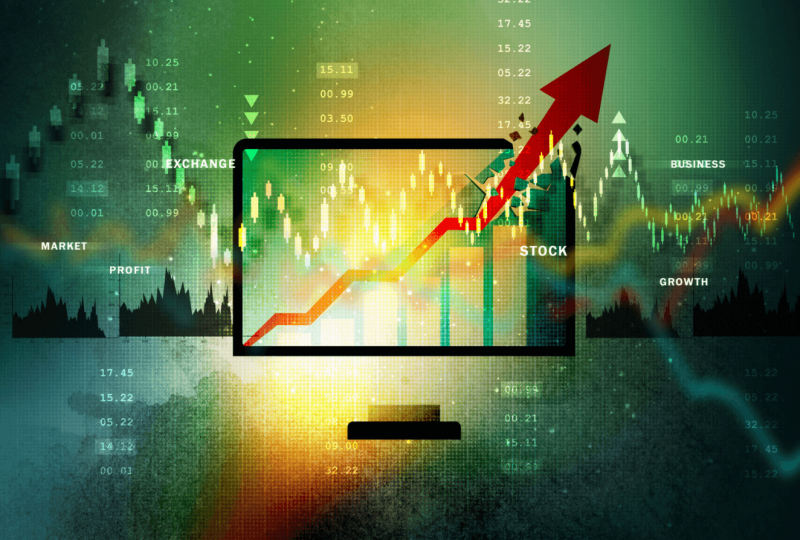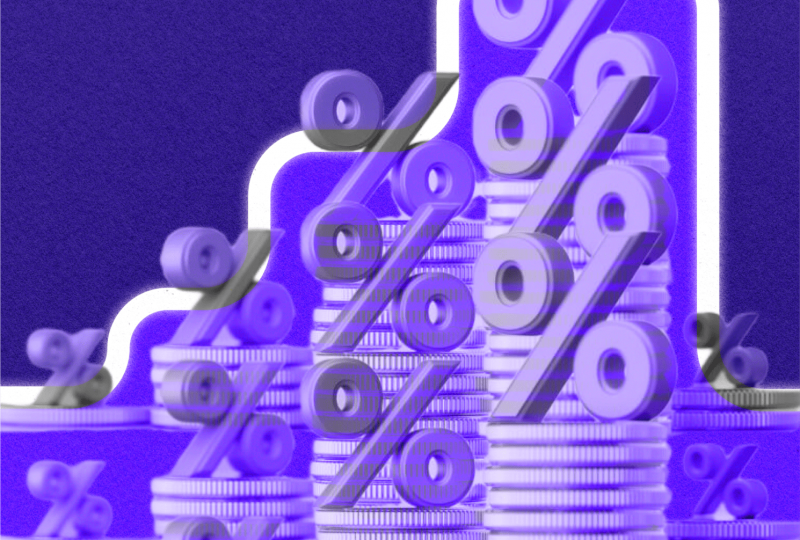Stock Market News Live Updates: Stocks Rise To End Three-Day Losing Streak As Traders Eye Earnings
Apr 13, 2022

On Wednesday, US equities rose as investors digested a series of highly anticipated quarterly results and a scorching print on inflation in the United States.
The S&P 500 gained more than 1%, stopping a three-day losing trend. The Nasdaq Composite outperformed, rising 2%, as tech stocks surged and Treasury rates fell across the curve.
Early Wednesday morning, investors got a number of earnings reports from big US firms and stock index members. JPMorgan Chase, the largest bank in the United States by assets, was among them, along with Delta Air Lines and Bed, Bath & Beyond.
In the bank's results released on Wednesday, JPMorgan Chase CEO Jamie Dimon presented a cautiously optimistic outlook on the US economy. Dimon stated that he is "optimistic about the economy, at least in the medium term," but that "major geopolitical and economic problems ahead owing to increasing inflation, supply chain concerns, and the conflict in Ukraine" remain. In addition, the bank increased its credit reserves by a net $902 million, "primarily due to heightened chances of downside risk," according to Dimon.
At the same time, Delta Air Lines, one of the biggest airlines at the core of the reopening trade, projected that business would pick up even more in the current quarter, despite the airline's first-quarter statistics showing another loss due to the omicron strain wave earlier this year. Delta reported that the airline returned to profitability in March and that earnings are likely to be between 92% and 97% of pre-pandemic levels for the current quarter ended in June.
This early round of quarterly results helped form the basis for what is projected to be a much milder quarter for profits growth than in previous quarters. As corporations battle with rising labor, raw material, and transportation expenses and overcome an initial surge in activity caused by last year's reopening, many on Wall Street are expecting weaker margins than in previous periods, even as sales remain robust in the face of heightened consumer demand and rising prices. According to FactSet, businesses in the S&P 500 are predicted to post year-over-year profits growth of only 4.5%, which, if achieved, would be the slowest rate since the fourth quarter of 2020.
"This earnings season is going to be one of the most impactful earnings seasons as it's actually giving you a clear insight into which firms... have that durable demand, which businesses have that pricing power," Kristen Bitterly, Citi's head of global wealth investments, said on Tuesday.
"Even in decades like the 1970s, when we had high inflation, large-cap quality US stocks were able to double their stock price during that time," she noted. "So that's the pocket of the market where we're either remaining invested or becoming invested."
And indeed, inflation has continued to remain a leading concern for investors, threatening to weigh further on both consumers' wallets and business profits. Inflation surged at the quickest rate since late 1981 last month, according to the Bureau of Labor Statistics' March Consumer Price Index, rising by a slightly faster-than-expected 8.5% over last year.
Some analysts, however, noted that the data was not all bad news and that it revealed some tentative indicators of a high in the rate of price hikes.
"I think the CPI report has a little bit more positive news in it than it appears at first glance... there's a host of factors in here that indicate that we're beginning to see inflation maximum, and it will roll over in the next few months," Tom Simmons, Jefferies fixed income money market economist, said. "It's crucial to remember that the CPI for March, the reference period here, occurred immediately following Russia's attack on Ukraine. So it actually captures the most intense time of fuel price hikes. And we've already witnessed a slight softening in the market in a few weeks afterward."
"The other thing is that services ex-energy — and if you remove the airline component — it was really a little bit softer than the previous several months," he continued. "Housing has been a bit softer in recent months, as have non-energy commodities. So, you know, the consumer has been able to withstand the storm of inflation very effectively."




